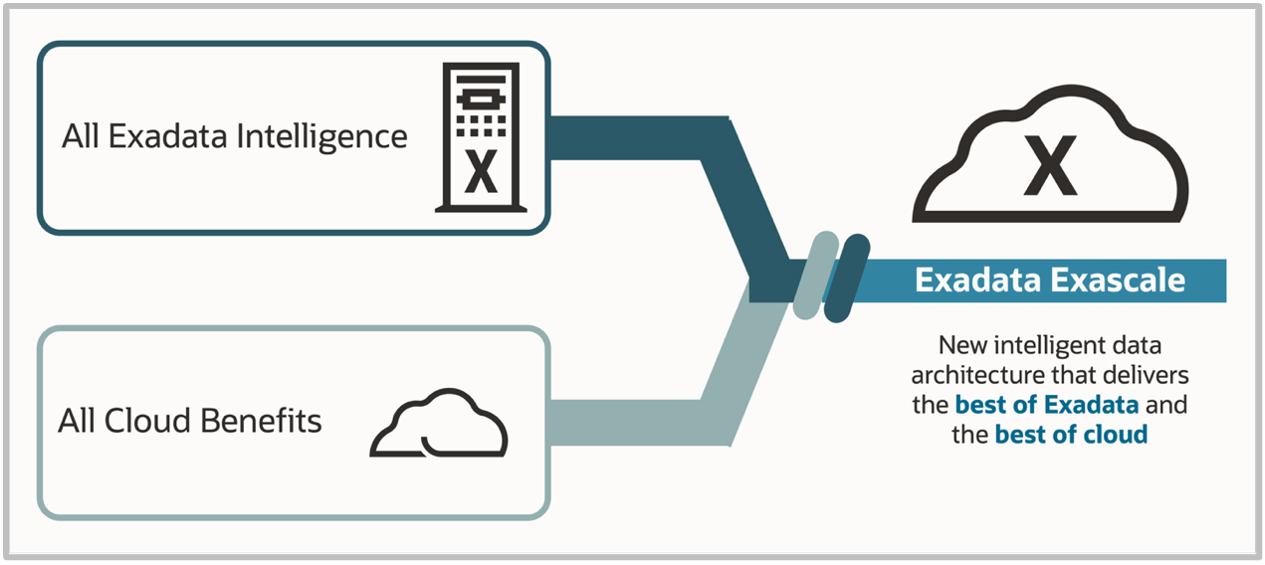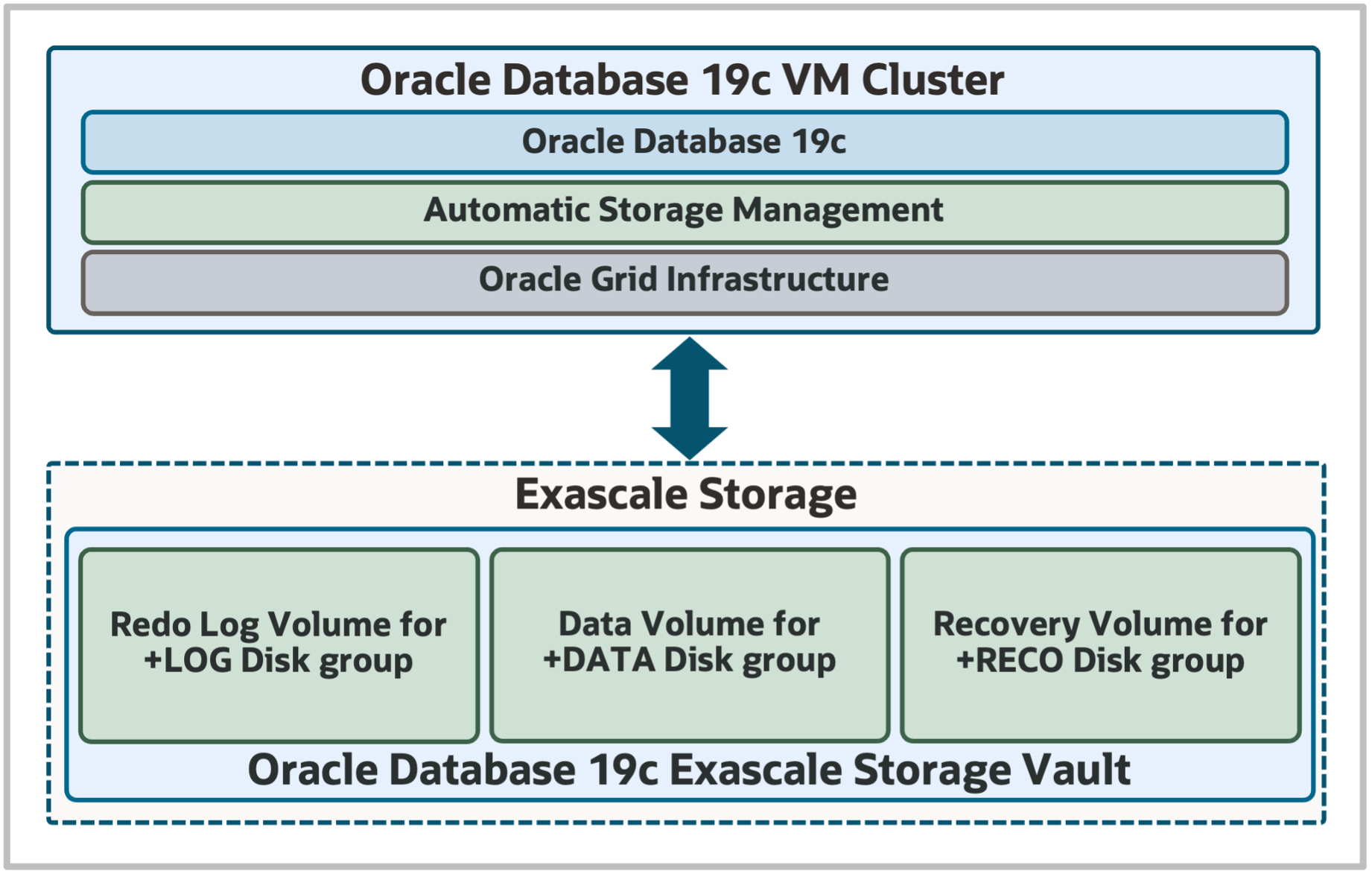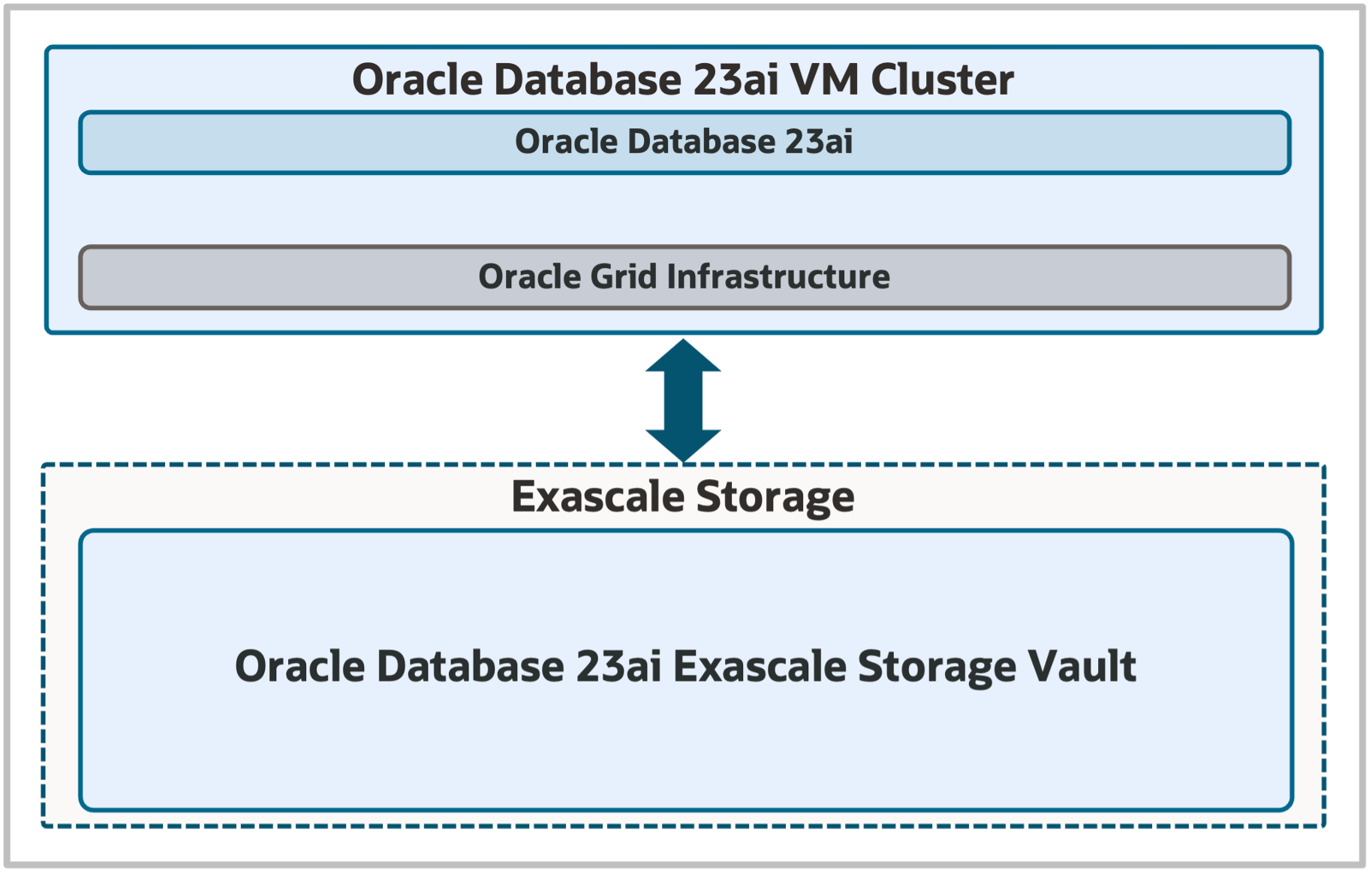In July 2024, we introduced Exadata Database Service on Exascale Infrastructure with Oracle Database 23ai support, utilizing Exascale technology to deliver Exadata extreme performance with more granular scalability in the public cloud. Some unique Exadata architecture capabilities include:
- Hardware-enabled RDMA algorithms that provide ultra-fast inter-node cluster coordination and low-latency, high-throughput data access from storage
- Automatic data tiering that delivers the performance of DRAM, IOPS of flash, and capacity and economics of disk
- Hybrid Columnar Compression (HCC) that compresses data up to 10x

Exadata Database Service on Exascale Infrastructure delivers Exadata intelligence with all cloud benefits including pay-per-use economics and a low entry cost. You can start with a small single virtual machine cluster using pools of shared database-optimized Exascale compute and intelligent storage. To ensure capacity is available when you need it, you can reserve cores at a nominal cost and scale online, without impacting existing workloads.
We are excited to announce that Oracle Database 19c is now supported with Exadata Database Service on Exascale Infrastructure. Many mission-critical workloads still run on Oracle Database 19c, a long-term supported release. You can realize the benefits of Exadata Database Service on Exascale Infrastructure for Oracle Database 19c with an upgrade path to Oracle Database 23ai when you are ready.
Architecture Overview
Exadata Database Service on Exascale Infrastructure leverages Exascale volumes and Automatic Storage Management (ASM) to support Oracle Database 19c. In an Exascale Storage Vault, Exascale volumes are exported as block devices and store database files in +LOG, +DATA, and +RECO ASM disk groups. Exascale manages the storage striping and mirroring for redundancy. The +LOG disk group is introduced so Exascale can identify IO for redo logs and prioritize their use of flash for higher performance.

In contrast, Exascale with Oracle Database 23ai stores and manages database files directly in an Exascale Storage Vault. Due to the native integration, we recommend upgrading to Oracle Database 23ai to benefit from all the Exascale intelligent capabilities such as Exadata Smart Scan, AI Vector Search acceleration, Exadata Columnar Cache, and Storage Indexes.

Summary
Exadata Database Service on Exascale Infrastructure now provides extreme performance, availability, security, and consolidation capabilities for Oracle Database 19c at a lower entry cost with more granular scalability. Support for both Oracle Database 19c and Oracle Database 23ai helps meet you where you are at in your database lifecycle while providing the benefits of next-generation Exascale technology with cloud automation and economics for all your databases.
For more information
Refer to these important links to help you get started:

